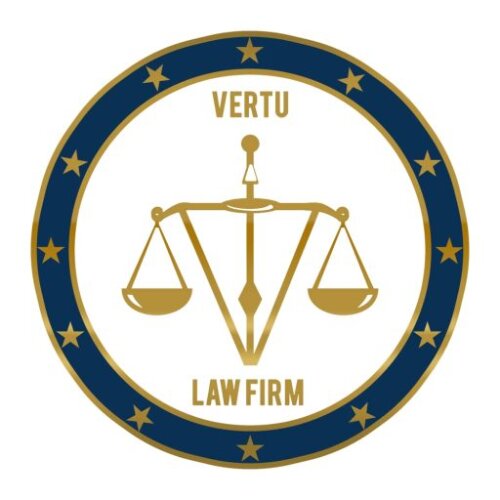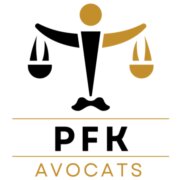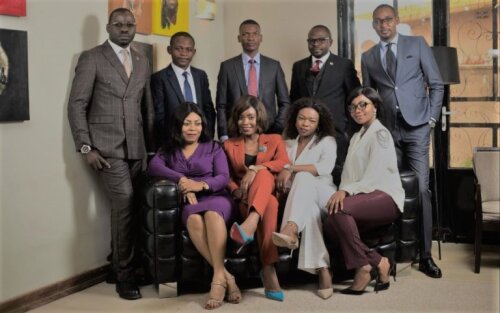Best Licensing Lawyers in Lubumbashi
Share your needs with us, get contacted by law firms.
Free. Takes 2 min.
List of the best lawyers in Lubumbashi, DR Congo
About Licensing Law in Lubumbashi, DR Congo
In Lubumbashi, the second-largest city of the Democratic Republic of the Congo (DRC), licensing laws govern the rights, obligations, and regulations related to various fields such as business activities, intellectual property, real estate, and professional certification. These laws ensure regulatory compliance and protect consumer interests. Though similar to international principles, the licensing law in Lubumbashi often incorporates local customs and traditions, making it unique.
Why You May Need a Lawyer
Licensing issues can be complex and often necessitate professional legal input. You may need a lawyer when starting a new business and need to understand the licenses required, or when dealing with intellectual property-related licenses like patents or trademarks. Moreover, licensing disputes can result in legal battles requiring the expertise of a lawyer versed in local laws and regulations. Therefore, for error-free licensing processing, understanding licensing restrictions, and navigating potential disputes, legal advice can be invaluable.
Local Laws Overview
In Lubumbashi, several local laws apply to licensing. For businesses, obtaining the appropriate licenses and permits is mandated by law for legal operation. This applies to businesses of all types - from local street vendors to large corporations. Intellectual Property rights are protected under national Congolese Law, which complies with The Paris Convention for the Protection of Industrial Property and The Berne Convention for the Protection of Literary and Artistic Works. Additionally, the local laws also regulate professional licensing for occupations such as lawyers, architects, and medical professionals. Failure to comply may lead to legal consequences including fines or business closure.
Frequently Asked Questions
1. How do I obtain a business license in Lubumbashi?
To acquire a business license, application should be made to the relevant municipality or administrative body. This typically involves providing necessary business information and paying the application fee.
2. Are there penalties for operating without a license?
Yes, operating without a license may result in fines, imprisonment, or both. Additionally, the unlicensed business may be shut down.
3. What is the validity of the licenses?
The validity varies based on the type of licensing. Typically, most business licenses are renewable annually.
4. What can I do if my application for a license is denied?
If your application is denied, you have the right to appeal the decision. The process generally involves an attorney and can be complex.
5. Can I transfer my business license to others?
Most licenses are non-transferable and must be re-applied for in the event of a change in business ownership.
6. Why is professional licensing important?
Professional licensing ensures that only qualified individuals practice certain professions, thereby protecting consumer interests.
7. What is an Intellectual Property License?
An Intellectual Property License allows others to use your intellectual property, such as patents, trademarks, or copyright. It can provide an additional income source for the IP owner.
8. How are licensing laws enforced in Lubumbashi?
Licensing laws are enforced by relevant local authorities. The penalties for non-compliance can be severe, including fines, business closure, or imprisonment.
9. Do foreign businesses also require licenses?
Foreign businesses operating in Lubumbashi require necessary licenses to operate legally in accordance with Congolese and local laws.
10. Can I operate a business from my home?
Operating a business from home may require a specific home-business license or permit. Always consult legal guidance for precise information in this regard.
Additional Resources
Additional resources include the local chambers of commerce, professional licensing boards, and governmental bodies such as The Congolese Office of Copyright and Neighboring Rights (BCDA). These bodies can provide specific guidance, updates, and assistance with licensing matters.
Next Steps
If you find yourself needing legal assistance concerning licensing in Lubumbashi, consider hiring a local lawyer who is well-versed with the local licensing laws. This can help not only with the licensing process but also with any potential disputes or legal issues that may arise. Preparing yourself with adequate knowledge is also beneficial and can prevent unnecessary legal complications.
Lawzana helps you find the best lawyers and law firms in Lubumbashi through a curated and pre-screened list of qualified legal professionals. Our platform offers rankings and detailed profiles of attorneys and law firms, allowing you to compare based on practice areas, including Licensing, experience, and client feedback.
Each profile includes a description of the firm's areas of practice, client reviews, team members and partners, year of establishment, spoken languages, office locations, contact information, social media presence, and any published articles or resources. Most firms on our platform speak English and are experienced in both local and international legal matters.
Get a quote from top-rated law firms in Lubumbashi, DR Congo — quickly, securely, and without unnecessary hassle.
Disclaimer:
The information provided on this page is for general informational purposes only and does not constitute legal advice. While we strive to ensure the accuracy and relevance of the content, legal information may change over time, and interpretations of the law can vary. You should always consult with a qualified legal professional for advice specific to your situation.
We disclaim all liability for actions taken or not taken based on the content of this page. If you believe any information is incorrect or outdated, please contact us, and we will review and update it where appropriate.












